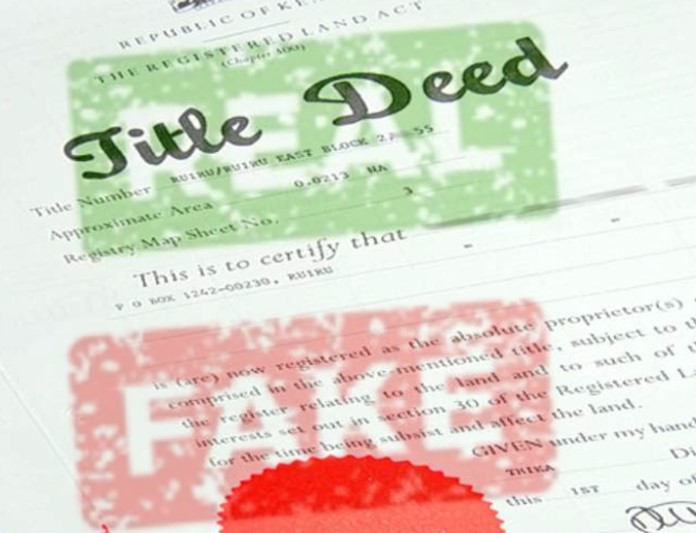Landmark Judgement: The Onus of Proving Land Title Validity Shifts to the Buyer
The Supreme Court of Kenya recently rendered a landmark decision in the case of Dina Management Limited v County Government of Mombasa & 5 others (Petition No. 8 (E010) of 2021), on 21st April 2023, carrying far-reaching implications for property investors and stakeholders in Kenya. This decision sets an important precedent in relation to due diligence in property transactions.
Facts of the Case
Dina Management Limited (the Petitioner) vide the Petition of Appeal dated 15th July, 2021 challenged the decision of the Court of Appeal in Civil Appeal No. 150 of 2021 which affirmed the judgment of the Environment and Land Court (A. Omollo J.) in ELC Petition No. 8 of 2017 consolidated with Petition No.12 of 2017.
The Petitioner\’s complaint stems from the actions of the County Government of Mombasa (the County Government). In September 2017, the County Government forcefully entered the Petitioner\’s registered property, MN/1/6053 (the Suit Property), located along Nyali Beach, Mombasa County. They demolished the entire beachfront perimeter wall and leveled the property to the same height as the beach. The County Government argued that this was done as an enforcement measure to create a pathway to the beach, claiming that the Suit Property was public land rather than privately owned.
The County Government challenged the validity of the title of the Suit Property. It claimed that the initial owner of the Suit Property obtained the title in 1989 through illegitimate means and that the Suit Property was actually public land designated for a public road.
In response, the Petitioner argued that they had acquired the Suit Property as a bona fide purchaser for value and without notice of irregularity, for a sum of KES.18 million and had conducted due diligence and investigation prior to obtaining the title. The Petitioner stated that it was not party to the alleged improper acquisition process that occurred in 1989.
Legal Analysis
Section 26 of the Land Registration Act (the LRA) expressly states that a certificate of title shall be taken by all courts as prima facie evidence that the person named as a proprietor of land is the absolute and indefeasible owner of such land, except in the following circumstances:
(a) if the proprietor was party to the fraud or misrepresentation leading to issuance of the certificate of title; or
(b) where the certificate of title has been acquired illegally, unprocedurally, or through a corrupt scheme.
The Black’s Law Dictionary 8th Edition defines a bona fide purchaser as:
“One who buys something for value without notice of another’s claim to the property and without actual or constructive notice of any defects in or infirmities, claims or equities against the seller’s title; one who has in good faith paid valuable consideration for property without notice of prior adverse claims.”
For a purchaser to successfully rely on the bona fide doctrine, (he) must prove that:
- he holds a certificate of title;
- he purchased the property in good faith;
- he had no knowledge of the fraud;
- he purchased for valuable consideration;
- the vendors had apparent valid title;
- he purchased without notice of any fraud; and
- he was not party to any fraud.
The Supreme Court decision
The Supreme Court upheld the decisions of both the High Court and the Court of Appeal, stating that the Suit Property was considered a public utility and therefore could not generate a private proprietary interest that could be legally protected by the Court.
In its decision, the Supreme Court highlighted that the Suit Property was designated as an open space reserved for a \”public purpose,\” making it ineligible to be classified as \”unalienated land.\” Consequently, the ownership of the Suit Property was not capable of being transferred.
The Court also cited the Court of Appeal decision in Samuel Kamere v. Lands Registrar, [Kajiado Civil Appeal No. 28 of 2005 [2015] eKLR] where the Court pronounced itself as follows: “…in order to be considered a bona fide purchaser for value, they must prove; that they acquired a valid and legal title, secondly, they carried out the necessary due diligence to determine the lawful owner from whom they acquired a legitimate title and thirdly that they paid valuable consideration for the purchase of the suit property…”
The Supreme Court determined that the Petitioner could not claim the defense of being a bona fide purchaser since they ought to have exercised greater caution in conducting their due diligence noting that the Suit Property, being a beach front property, naturally possessed significant appeal and potential profitability. Consequently, the right to property, as outlined in Article 40(6) of the Constitution of Kenya, did not apply, and the land automatically vests in Mombasa County in accordance with Article 62(2) of the Constitution.
Implications and Recommendations for Investors
Investors are now tasked with conducting thorough and in-depth due diligence prior to purchasing property in Kenya. This way, they will establish the validity of title beforehand, and not risk purchasing a property whose root title is questionable.
A good root of title is one whose process of granting the title and/or lease adhered to legal requirements, includes a clear description of the property, and does not raise any uncertainties regarding the legitimacy of the title.
Parties can investigate the root of the title by:
- Conducting customary searches at the Lands Office and requesting to inspect the files pertaining to the property in question, in particular the correspondence file.
- In instances where the question of whether the property is public land could arise, request letters of allotment that prove the land is not public land.
- Verifying that the property is not listed in the Ndungu Report on Illegal/Irregular Allocation of Public Land in Kenya.
- Hiring a surveyor to conduct relevant searches at the Survey of Kenya.
Customary searches at the Lands Office may prove a burdensome task at the moment with the current state of land records in Kenya due to the ongoing digitization process, it is nonetheless a mandatory step. Furthermore, the land searches conducted in land registries in Kenya do not necessarily delve into the root of the title.
If you have any queries relating to the above, please do not hesitate to contact James Wairoto. Please note that this publication is meant for general information only and should not be relied upon without seeking specific subject matter legal advice.
By: James Wairoto and Tracy Simiyu.







